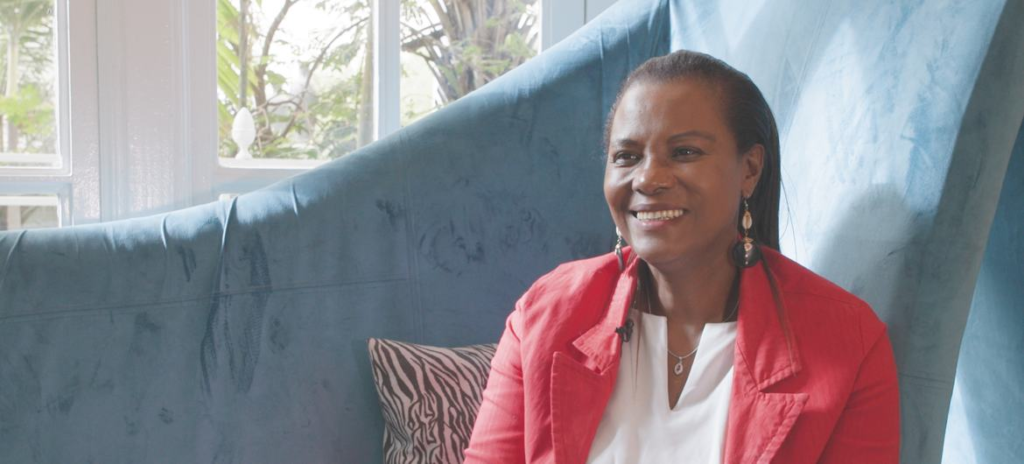
New York, USA, 06 March 2023-/African Media Agency(AMA)/Seraphine Wakana, the UN Resident Coordinator in The Gambia, is coming to the end of her mandate. In this blog, she reflects on her experience over the last five years, which have seen the country emerge from a long period of authoritarian rule.
When my mandate began, in 2018, it was not long after the end of the dictatorship [The two-decade rule of Yahya Jammeh]. The new Government was already embracing several reforms simultaneously, reviewing the constitution, the judiciary, and the security sector, and the UN had allocated funds for peacebuilding.
Truth and reconciliation
An important development was the establishment of the Truth, Reconciliation, and Reparations Commission (TRRC), with the backing of the UN and other partners.
People were enthusiastic to embark on the Commission, which has been very important for the country. Expectations were high from the victims, from the population, but also from different partners. It was important that it should be a Gambian-driven process, to avoid any influence from outsiders. We helped to set it up and provided the necessary expertise to run it.
The Ministry of Justice needs to be strengthened, because they are leading that process, and this is the first time that they have had to face a case like this. Here again, we’re providing the expertise to work on a roadmap that will lead to implementation of the Commission recommendations.
We’re involved in communications connected with the process: we want to ensure that the communities, local governments, and civil society all know what role they have to play, and manage expectations. These reforms are not going to happen in one day, it will take many years, and we need to make sure that is understood.
Now it’s time to put reforms into practice. So far, the Government has released a white paper approving almost all of the recommendations. The COVID-19 pandemic slowed the process, but I think that they are still committed to do more.
Laying strong foundations
It’s crucial to have a government that shows leadership. If not, you can outline a vision for where you think the country should go, but you won’t get anywhere.
We have supported the Government’s creation of a Department for Strategic Planning and Delivery, within the office of the President. We have trained the staff, and shown them best practice in other countries.
When we arrived, there was no Minister for Gender, so we advocated for a new ministry to be established, and we are seeing progress in terms of women’s empowerment.
Coming out of a twenty-year dictatorship, where human rights were abused, we supported the creation of a National Human Rights Commission, which is fully functional and, in many ways, a centrally important institution, which will monitor the implementation of the TRRC.
Going forward, it’s crucial for The Gambia to succeed in building strong institutions, something which is true for all countries. If institutions are weak, you can’t implement any plans, and you waste resources.
I think that this country is moving in the right direction. We have many more partners now, and the donor community is growing. After a five-year period, the transition is nearly complete, and we have helped the Government to lay the foundations for most of the reforms, policies, and strategies.
Changing lives for the better
Aside from supporting the reforms, we’ve been an active partner in developing the economy, empowering women, and climate action.
In terms of the economy, where tourism plays an important role, UN agencies have focused on providing training for young people and vulnerable groups such as returning migrants, and giving them seed capital to start their own businesses. Often, returning migrants feel like a burden on their families, but with our help many of them have been able to thrive.
Unfortunately, this is a country where there is significant violence against women, including female genital mutilation. Sometimes women don’t want to talk about the violence they suffer, so we have set up hotlines they can call, and built centres where they can go to be treated, and receive support.
The climate crisis is affecting The Gambia, particularly in terms of flooding; last year was the worst flooding experienced here in 38 years. It may not be on the scale of the floods seen in Pakistan but, for a small country with a small population, it made a big impact.
Our agencies provided food and shelter for those displaced by the flooding, and providing clean drinking water, but we are also helping the population to adapt, and become better prepared before the next floods arrive.
I’m confident that we have changed lives for the better in The Gambia. We’re still in the early stages, but I believe that we’ve created solid foundations for development, and that we will see even greater impact in the next five years, and see the country develop in a cohesive manner, in all regions of the country, with no one left behind.
Distributed by African Media Agency (AMA) on behalf of UN NEWS.
The post Changing lives in The Gambia: A UN Resident Coordinator Blog appeared first on African Media Agency.